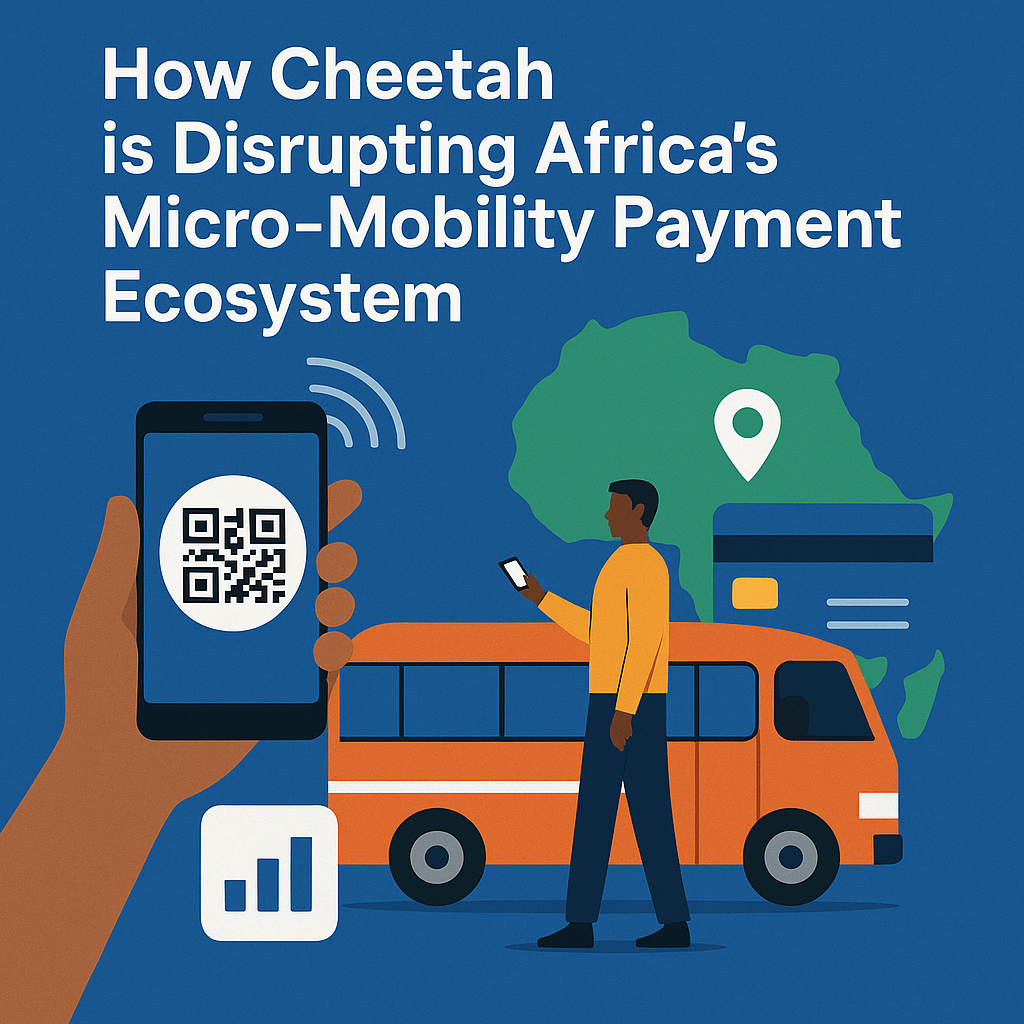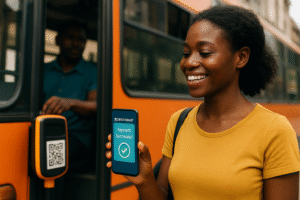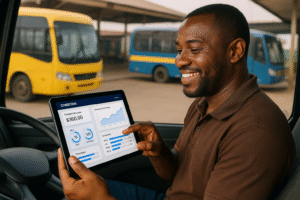Introduction
Cheetah, a fast-rising micro fare payment service, is setting new standards in Africa’s transportation sector. By focusing on digital inclusion, contactless transactions, and real-time analytics, Cheetah is helping millions of underserved commuters move smarter and safer. As Africa’s cities expand and urban mobility grows more complex, the demand for affordable, seamless payment solutions is stronger than ever.

The Transportation Payment Problem in Africa
Across many African cities, public transportation remains fragmented and cash-dependent. Commuters often face:
- Long queues and delays due to cash handling.
- Lack of standardized fare systems across buses, tricycles, and informal transport.
- Security risks associated with carrying cash.
- Limited access to digital payment infrastructure in low-income communities.
Transport operators also struggle with leakages in revenue collection, poor data tracking, and difficulty scaling operations.
According to the World Bank’s Urban Transport in Africa, more than 70% of African cities rely on informal transport modes—highlighting the urgent need for digital transformation.
Cheetah’s Smart and Scalable Payment System
Cheetah solves these challenges with a mobile-first, micro-transaction platform that works across multiple transport modes.
- Contactless fare payments via QR codes, NFC cards, or mobile apps.
- Real-time transaction data for operators and city planners.
- Dynamic fare pricing, enabling affordable rides for different income levels.
- Cloud-based reporting to improve revenue transparency.
By integrating with both formal and informal transport networks, Cheetah provides a scalable solution that adapts to the unique challenges of African cities.
Benefits for Commuters and Operators
For commuters, Cheetah offers:
Seamless payments – no need for cash or loose change.
Budget-friendly travel – riders can top up small amounts as needed.
Faster boarding times – reducing waiting time at bus stops.
For operators, it brings:
Secure revenue collection – minimizing cash theft or leakages.
Passenger insights – enabling better route planning.
Increased ridership through digital convenience.
This creates a win-win ecosystem that promotes trust, efficiency, and sustainability.
Mobile-First and Offline Capability
One of Cheetah’s biggest innovations is its offline-first technology.
In areas with poor internet connectivity, Cheetah’s system still allows payments and syncs data later when the network is available. This ensures continuous service, even in remote or underserved communities.
Combined with a lightweight mobile app and SMS-based payment options, Cheetah ensures digital inclusion for low-income and unbanked users.
Cheetah’s Impact in Nigeria, Kenya, and Ghana
Cheetah is already making waves in Lagos, Nairobi, and Accra:
- In Lagos, operators using Cheetah have seen a 30% increase in daily revenue thanks to improved fare collection. (See our Case Study in Lagos)
- In Kenya, matatu (minibus) operators report reduced boarding time by 40%.
- In Ghana, commuters enjoy flexible top-up options, reducing travel stress for low-income riders.
With plans to expand into more African cities, Cheetah is positioning itself as a key driver of smart urban mobility across the continent.
Conclusion
Africa’s micro-mobility payment ecosystem is ripe for disruption—and Cheetah is leading the charge. By providing a smart, scalable, and inclusive payment solution, Cheetah is improving the way millions of Africans move daily.
Want to see how Cheetah can transform your transport operations?
👉 Explore Cheetah Features


